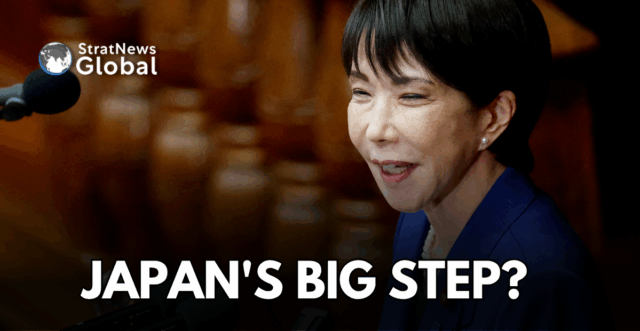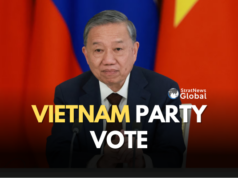Japanese Prime Minister Sanae Takaichi this week hinted at a possible shift in the country’s decades-old non-nuclear principles, raising speculation that she might seek to revise a ban on the entry of such weapons into its territory.
Takaichi, on Monday in parliament, said she could not say whether those three principles, not to possess, produce, or introduce nuclear weapons into its territory, would be maintained in an upcoming revision of Japan’s security strategy.
“I cannot make a definitive statement or say that it will be written in such a manner,” she said, responding to an opposition lawmaker’s question. She added that, for now, the government still adheres to them as a policy guideline.
Revising The Third Principle
Her past comments and refusal to commit to the pledge upheld by Japanese administrations since 1967 have raised the possibility she may seek to revise the third principle, which prohibits nuclear weapons from entering Japan’s territory.
In a 2024 book, before she took office, she described that principle as not realistic, as the United States may need to bring nuclear weapons into Japan to deter rivals. Japan, like neighbouring South Korea, is protected under Washington’s so-called nuclear umbrella.
There is a growing political and public willingness in Japan to loosen that pledge, even though it remains a taboo subject in the only nation to have suffered an atomic bomb attack, a Reuters investigation published in August found.
Some lawmakers within Takaichi’s ruling Liberal Democratic Party have said the U.S. should be allowed to bring nuclear weapons into Japan, on submarines or other platforms, to strengthen deterrence as China expands its nuclear arsenal.
Her new coalition partner, the Japan Innovation Party or Ishin, has also previously advocated for Japan to reconsider the three principles.
Openness To Alternatives
Anti-nuclear groups in Japan fiercely oppose such moves, saying Tokyo is morally bound to oppose nuclear weapons, including their presence on Japanese soil, due to the horrors of the bombings of Hiroshima and Nagasaki at the end of World War Two.
But as those memories fade and regional threats mount, public opinion polls show growing openness to discussing alternative nuclear options.
Chief Cabinet Secretary Minoru Kihara declined to clarify Takaichi’s position when asked at a regular news conference on Wednesday, saying that the government “refrains from making any assumptions at this stage.”
(with inputs from Reuters)





